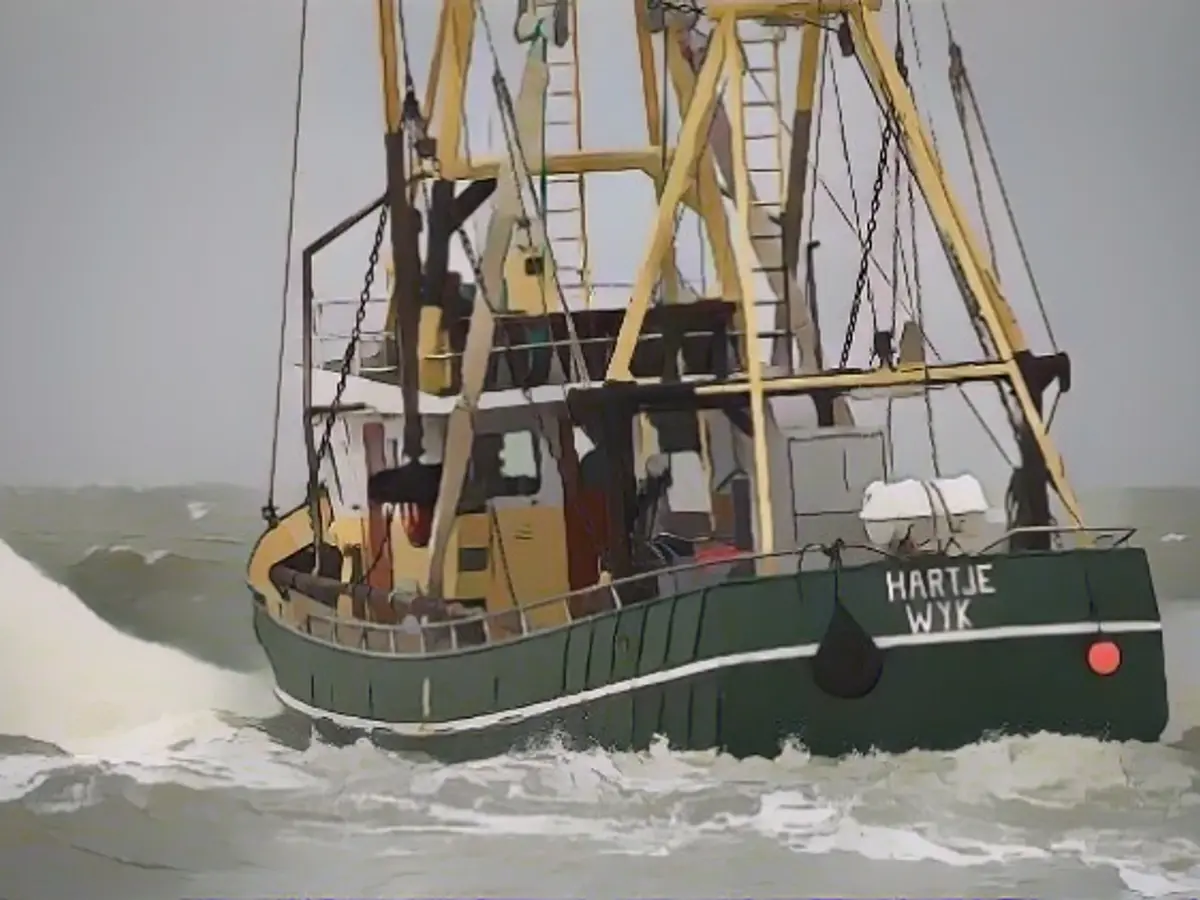EU fisheries ministers agree significant increase in fishing quotas in the North Sea
The EU fisheries ministers have agreed on a significant increase in catch quotas for many species in the North Sea in the coming year. According to the agreement, the catches of herring, cod, saithe, haddock and plaice, which are particularly important stocks for Germany, will be increased. The quota for haddock will be 66 percent higher next year, for herring by 30 percent and for cod by twelve percent.
For example, EU fishermen will be allowed to catch a total of 209,000 tons of herring next year, with German fishermen accounting for around 48,500 tons, according to the Federal Ministry of Agriculture. In the case of mackerel, which is fished jointly by all coastal states in the North-East Atlantic, the catch volume will fall slightly by nine percent, according to the figures.
"There is good news for many stocks used by the German cutter fishery," explained the German Fisheries Association. "This clearly shows that the sustainable management of recent years is bearing fruit and bringing increasing catch quotas for fishermen and consumers."
Deutsche Umwelthilfe (DUH) called the North Sea fishing quotas "completely inadequate" for the protection of important fish populations. The amount of cod is "well above the scientific recommendation". Just over 9,000 tons may be caught, twelve percent more than last year. This is critical because this quota combines various sub-populations, of which the southern population off the German coast is particularly endangered.
As in the previous year, the negotiations on catch volumes for the North Sea and North Atlantic focused in particular on eel populations. According to the Federal Ministry of Agriculture, the fisheries ministers agreed to maintain the closed season of six months and to continue to ban maritime recreational fishing for eel.
"We advocated a more cautious approach to the eel stock right up to the end," explained Silvia Bender, State Secretary at the Federal Ministry of Agriculture. The uniform closed season in the North and Baltic Seas is a step forward compared to the previous year. This will prevent eels from being fished out on their way between the two seas. However, the ministry criticized the expansion of glass eel fishing. This would increase the danger to the animal population.
Read also:
- Year of climate records: extreme is the new normal
- Precautionary arrests show Islamist terror threat
- SPD rules out budget resolution before the end of the year
- Numerous oil, gas and coal lobbyists at climate conference
- The increase in catch quotas for various fish species in the North Sea is expected to allow EU fishermen to catch more fish, such as a 66% higher quota for haddock next year.
- Critics argue that the agreed North Sea fishing quotas, including a 12% increase in the cod catch, are inadequate for the protection of important fish populations, particularly the southern cod population off the German coast.
- The EU fisheries ministers' decision to maintain the closed season for eel fishing and ban recreational fishing for eel in the North and Baltic Seas is a step towards sustainable management, although they expressed concern about the expansion of glass eel fishing.
Source: www.ntv.de








